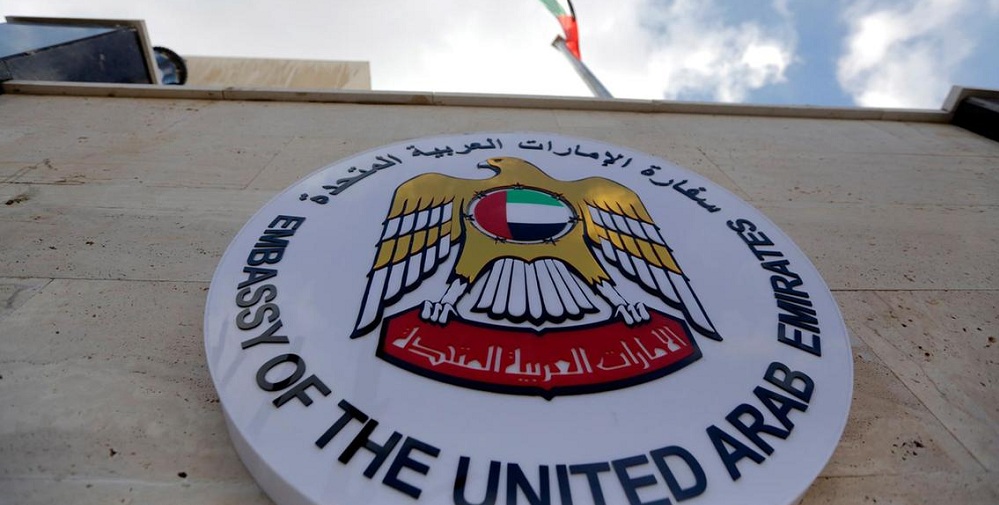Alwaght- These days, the Damascus is a destination for Arab diplomats who are seeking to restore diplomatic relations with the Syrian government after nearly seven years of political boycott of the Arab country.
The current government in Damascus is the same one, which was ruling the country in 2011, the year the foreign-backed war was imposed on Syria. At that time, some Arab states, including the Persian Gulf Arab sheikhdoms severed diplomatic ties with the government of President Bashar al-Assad, closed their embassies and diplomatic missions in Damascus, and supported the foreign-armed groups fighting President Assad across the country. But now things have changed as the Arab governments appears to be rivaling for normalization of ties with Damascus.
Ambassadors are coming back
Two weeks ago, the Sudanese President Omar al-Bashir was the first Arab leader to visit Syria since the eruption of 2011 crisis.The meeting with Syria’s Assad took the attention because Sudan over the past few years established relatively close relationship with Saudi Arabia, an arch-supporter of anti-Assad terrorists. The Sudanese foreign policy has been fully in line with that of Saudi Arabia over the past few years. This leads to the speculations by the analysts that the trip to Damascus came with a green light from Riyadh to Khartoum. To put it differently and more realistically, Bashir's visit was another sign Riyadh leaders have backed down on their once-strongly-held anti-Damascus positions as the Arab kingdom now faces a more stabilized Syria.
But it was not only Sudan that disconnected itself from the anti-Syrian sphere and announced a thaw with Damascus. Following al-Bashir’s trip, the UAE, Bahrain, and Kuwait stated they will soon reopen their embassies in Damascus. Interestingly, the three Arab states announced the news simultaneously. The statements were made in such a surprise to the Arab–and the whole– world that a reporter of an Arab country’s news network described the moves to normalize ties with the Syrian government a “race".
Return to Arab League
Amid the Arab envoys return to the Syrian capital, some news outlets reported about possibility of Syria return to the Arab League. The Arab country was suspended from the bloc shortly after outbreak of the conflict.
The Lebanese Al-Mayadeen news network has reported, citing diplomatic sources, Saudi Arabia, which pressured others for Syria suspension back in 2011, has told the members of the League that it does not oppose Syria re-admission. The sources told the Arab-language broadcaster that they expected Egypt to step in for contacts with Syria over the issue to discuss the return, although the US pressures in opposition to the decision remain in place.
The US opposition is a fact. While the Arab states and even Saudi Arabia are made to accept the realities of the battleground in Syria which display an apparent upper hand of Damascus over the terrorist groups, Washington is yet to accept the fact that the Syrian leader has come out of the 8-year fierce crisis as a winner.
Syrian equations changing
Apparently, today's developments of Syria are totally different from what they were at the beginning of the devastating war and when some Arab states cut off their ties with Damascus and embarked on a hostile policy towards it.
The shift in the course of Syria's developments is very evidently observable from the recent US President Donald Trump’s decision to pull the American troops out of Syrian fronts. The Trump pullout order exhibited how costly the American presence in Syria was. The costs were not only financial as Trump claims. On the contrary, a large part of the American forces’ presence in Syria was political. The US troops were stationed in northern Syria since 2014 under the cover of fight against ISIS terror organization.
Over the past four years, the Americans threatened the Syrian government, adopted a hostile economic policy against it, and armed its opponents, many of them terrorist factions. But the game result was not of avail to the US and its allies who worked under an uninvited military coalition in Syria. Now the central government fast regains its strength and administration as it reclaims control of lands from the armed groups. The US appears to be far from being able to stand the political costs of Syria presence without any tangible achievements.
Another evidence of shift in the Syrian developments is the in-the-making alliance of the Syrian government and the Kurdish forces in the north of the country. The US was a key backer of the Syrian Kurds, mainly the People’s Protection Units (YPG), in the northern areas. But now that the Americans are retreating, the Kurds see interests in coalescing with the central government. They invited Syrian Arab Army to Manbij, a Kurdish-controlled town in the north, and handed over it to the Assad forces, something indicating Assad has managed to win the trust of at least part of his opponents. Now the government only has to fight the terrorists not all the opposition groups. The Assad-Kurdish coalition has shown that just contrary to the Western media propaganda, Assad does not seek ethnic and ideological monopoly. The alliance also exhibits the need for the government and the people to unite their efforts to repel threats at home and from abroad.
Arab countries’ attempts to restore ties with Damascus, while over the past eight years were extremely hostile to the government, are the best indication of equations change. The UAE and Bahrain, for example, have come up with the notion that their absence in Syria only means reduced influence and chances of economic gains in the post-war Syria. Certainly, terrorism is at its end and very soon Syria will regain its post-crisis position. The Arab states have come to this conclusion that inaction in face of new developments in Syria will only mean damage to their interests in the Arab country, thus some of them have abandoned their hostile approach towards Damascus, and are trying to open new diplomatic pages with the country.



























